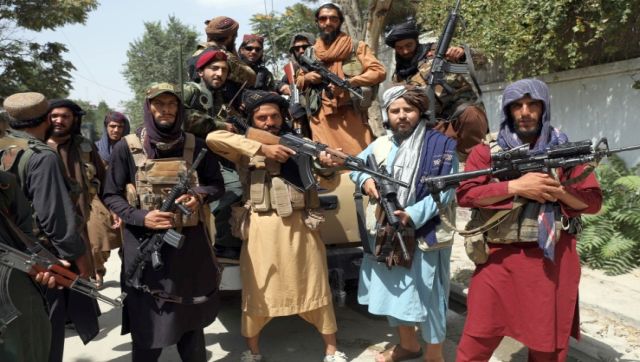New Delhi: Eight Afghan journalists who formerly worked for the BBC could now be evacuated to the United Kingdom after a British judge ordered the government to reconsider their plight. The motley group of journalists have spent more than a year in hiding in Afghanistan after they were left behind during the August 2021 British withdrawal. The British government turned a blind eye to the terrible risk they were running and had rejected their appeals, a year after receiving multiple applications from them. A member of the group has even been shot at by the Taliban, who somehow got the notion that he was a spy. All eight journalists have worked for several years for the British Broadcasting Corporation (BBC) in Afghanistan, prior to the current Taliban regime. Some of them had also worked more directly with the British government on projects, including democracy and media training. However, as the Taliban increasingly took over, they and their families became soft target and were even threatened with dire consequences. This started happening soon after the Taliban swept back to power almost overnight in August 2021, days after the last US troops withdrew from the region The High Court in London was told that one of the journalists had a bomb placed under their car, another was shot at in public — leading to severe injury of a family member while two others had been interrogated and tortured in connection with their work for the BBC. Since August 2021, the British government has evacuated 21,000 Afghans and their families, a group that includes local people who were working for British media agencies. But when those lists were drawn up, the BBC did not include any of the eight journalists who were Afghans. Their lawyer, Erin Alock, said their appeals for help went unanswered for a whole year. “When the British evacuated from Kabul, they were not put forward for evacuation by the BBC, because they weren’t employed at that time,” Alock said. “They were left behind. But the work that they were doing did go to British objectives in Afghanistan, those objectives weren’t just military objectives. They were things like promoting democracy,” the lawyer told the High Court. When their applications were eventually considered, British ministers refused to resettle any of them because officials concluded their work wasn’t directly connected to UK operations. After multiple appeals and a full-blown legal suite, on Monday, a judge said those rejections had not taken into account how the Taliban perceived the BBC and anyone associated with it. Had government case workers recognised this risk, said Justice Lane, there was “more than fanciful prospect” that the eight journalists would have been allowed to come to the United Kingdom. The journalist who had been shot at in a street in Afghanistan by a Taliban sharpshooter, thanked the judge on Monday for intervening. Earlier too, the BBC did not report specific threats he had experienced because of the risk of identifying him. “We have regularly changed our house - my children have been to different schools,” the journalist said. “The ruling Taliban regime have been very severe with national journalists who, like me, have worked earlier with international media. Any of us who have worked with the British or American media are under a serious threat,” he said desperately seeking anonymity. Following the judgement, UK ministers now have 21 days to reconsider each case - a move that the group hopes will lead to their evacuation—hopefully sometime soon. According to estimates, there may still be nearly 300 people plus family members in Afghanistan who need evacuation to the United Kingdom. Read all the Latest News , Trending News , Cricket News , Bollywood News , India News and Entertainment News here. Follow us on Facebook , Twitter and Instagram .
8 former BBC journalists may be evacuated to UK after winning case against British government
Sohini Sarkar
• February 14, 2023, 16:51:16 IST
All eight journalists have worked for several years for the British Broadcasting Corporation (BBC) in Afghanistan, prior to the current Taliban regime. Some of them had also worked more directly with the British government on projects, including democracy and media training
Advertisement
)
End of Article